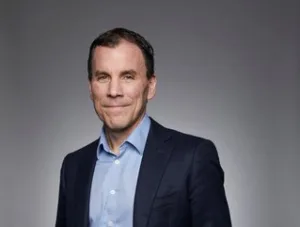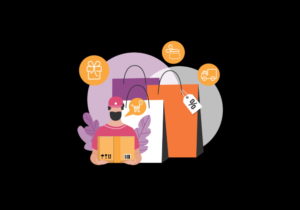Glynn Davis, our regular columnist and founder of Retail Insider sits down with Kieron Smith, digital director of Blackwells.co.uk and Wordery.com, to discuss how bookselling can be a happy combination of Ecommerce and physical bookstores…
Could you tell us about Blackwells.co.uk and Wordery.com?
Books, books, books! Blackwells.co.uk is the online shop of one of the oldest booksellers in the UK (founded in 1879 and online since 1995). We can claim to be the first transactional online bookseller. Although Blackwell’s is the country’s leading academic bookseller, the website sells (literally) millions of titles, academic and not.
Wordery.com is a more recent entrant to the market (10 years old this year) and joined Blackwell’s earlier this year. Wordery focuses on a slightly more popular market, but, having said that both teams share a passion for books.
What are your key areas of responsibility at the company including your new role?
I work with a fantastic crew of booksellers – we manage the site end-to-end in-house, including our own development team, content, marketing, customer service and distribution. The book trade attracts splendid people who enjoy getting the right books to the right people, whether this is our Java engineers, those selecting exciting titles for our newsletter or the people packing the books to be dispatched all over the world.
What has been keeping you busy over recent months?
At the end of February, it was announced that Waterstones were acquiring Blackwell’s, which has kept me a little busy. It’s great to have joined a company that is as committed to both online and bookshops as we are. Every brand in the company has a slightly different audience – and with so many books published each year this gives us the opportunity to shout about many different books, give authors a platform and continue to ensure bookshops continue to thrive on our high streets and campuses.
What excites you most about your role?
Booksellers were once described as “des hommes doubles” by Christophe Charle, as “experts who participate in both highbrow and popular culture, who build bridges between producers and consumers of cultural goods while acting as critics and filters”. Following the birth of the internet, the role of the bookseller may have changed from purely curating a selection of titles in a limited amount of space to, often, making millions of titles available online, however they still offer an important gateway to culture and information. It is exciting and rewarding to play a part in the cultural conversation, of which books play a crucial part.
You have great pedigree in bookselling and the online channel. What has surprised you about the way things have played out?
Kind of you to say so! I think that ecommerce, as a particular part of the retail industry, is still duller than it should be – we have lots of creative people but often don’t get a chance to innovate or engage with customers as much as they could. I include myself in this too. There should be more opportunities for retail theatre, but often I think we find ourselves simply keeping the boat afloat through changes like Brexit, GDPR, 3DS etc. that are all important but are hardly likely to excite customers.
What’s your view on physical shops versus online?
That it is not ‘versus’. Are we still having this debate in 2022? Bookshops are great, they run events better than Zoom, and offer a tactile and social space that is perfect for serendipity. Online provides sheer scale – of titles, search, etc. Bringing both together is just perfect. Allowing shops to use online’s wider range, offering online pick-up points in stores and more than that, the opportunity for booksellers across the estate to shout from the online rooftops about the books they love, the lists they can put together.
It’s essential for the business to not have a split between ‘on and offline’ and for people to have digital ‘in their blood’. Kim, Behr & Spafford (2014) in their excellent book The Phoenix Project talk about how: “IT is not merely a department. Instead it’s pervasive, like electricity. It’s a skill…we expect everyone we hire to have some mastery of it. Understanding what technology can and can’t do has become a core competency that every business must have. If any […] business managers are leading a team or a project without that skill, they will fail.”
Our booksellers in the shops, for example, construct their own local book bundles for students, they do it using online tools, they calculate the offer, add the books to the website, QA them and manage their orders for collection – and that’s one of many examples of integration working well.
Where do you think things will go from now?
[Insert cliché about change!] …cliché aside, I think we all know it’s going to be essential to continue to push the digitisation of businesses through the next recession. The flexibility and responsiveness technology can enable within retail to respond to the next challenge, to work with customers and connect them with our people, and to give tools to those on the front line to deliver the best service is essential.
Additionally, being able to cut up and manipulate data within the organisation means that businesses already have the potential to both understand their costs, drivers and levers, but can also develop new product offerings – I’m not talking ‘big data’ here – just extending the use of true service-oriented models. Matthew Taylor, when he was at the RSA, spoke of ‘thinking like a system and acting like an entrepreneur’ and I think there is a lot in that.
What are the challenges and opportunities at Blackwells.co.uk and Wordery.com?
I’ve talked the talk in these answers about being more exciting retailers and involving our people more and extending service-oriented models. All of which definitely present both challenges and opportunities for both businesses.
What do you see as future trends in bookselling?
Booksellers have had to grapple with the impact of the internet on their businesses from very early – indeed, the mid-1990s was one of the most disruptive periods for the trade. I think now if anything good booksellers are representing where a great deal of retail would like to go, we’re seeing more bookshops open and greater sales of physical copies – but based on a mix of broad availability, experiences in shops that really connect with customers (we run thousands of events a year) with knowledgeable people across the business who are thinking cross-channels.
During the pandemic more and more independent booksellers also opened their own online shopfronts and this has added a greater diversity of voices from specialists and local booksellers into the mix. I think those are going to be the trends for bookselling in general, a greater number of voices and more ways to discover and explore an ever increasing number of books available.












